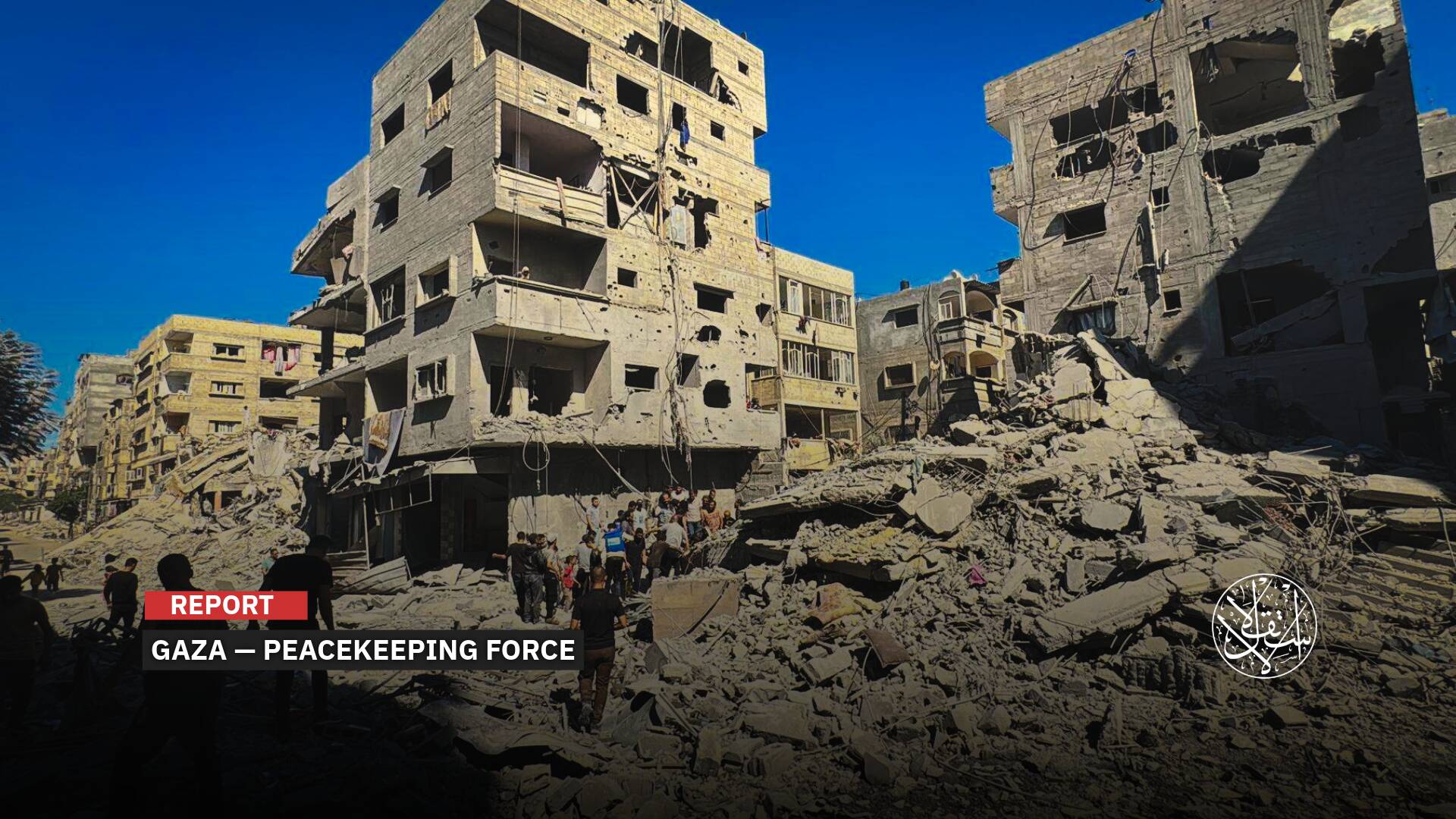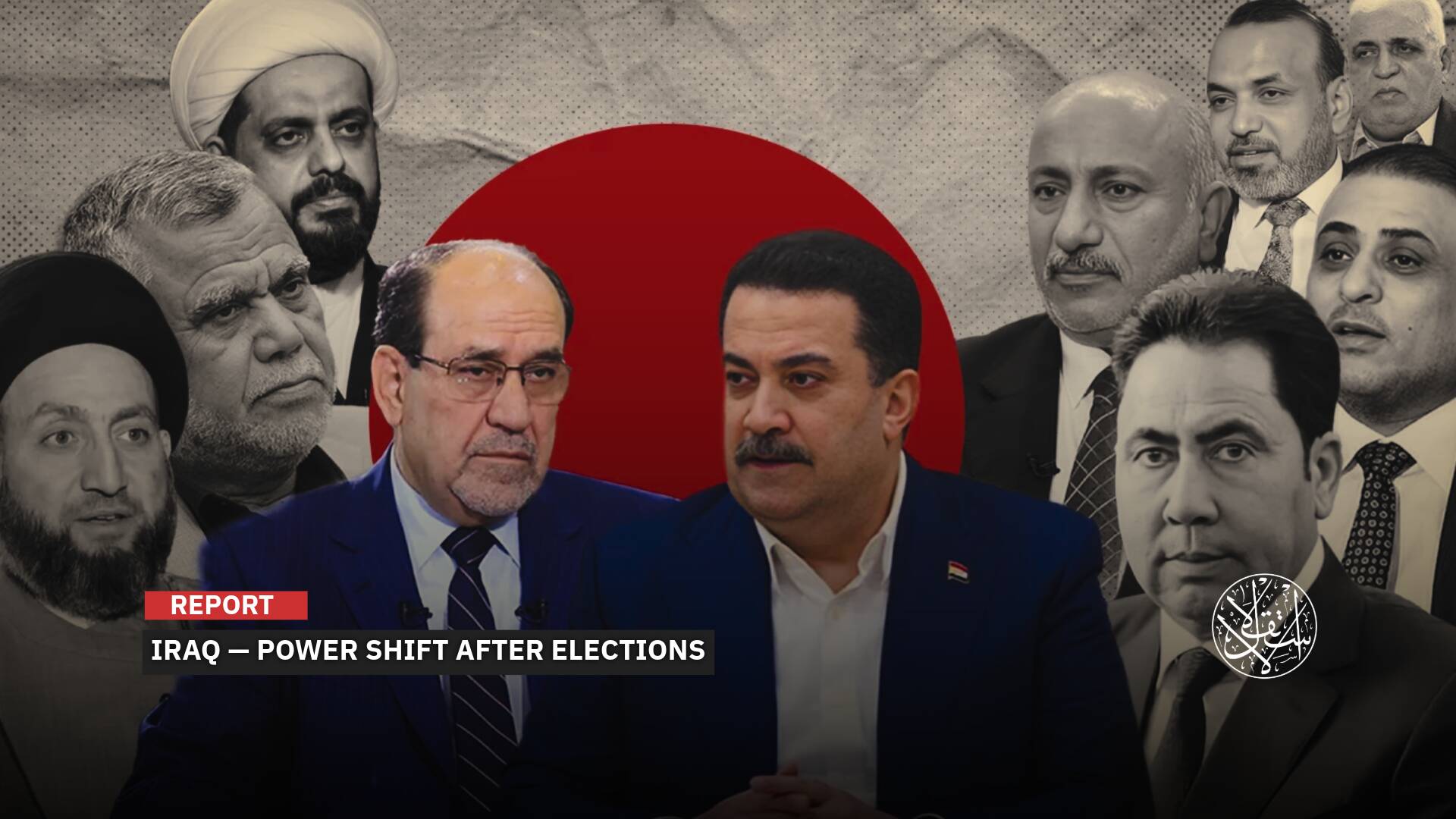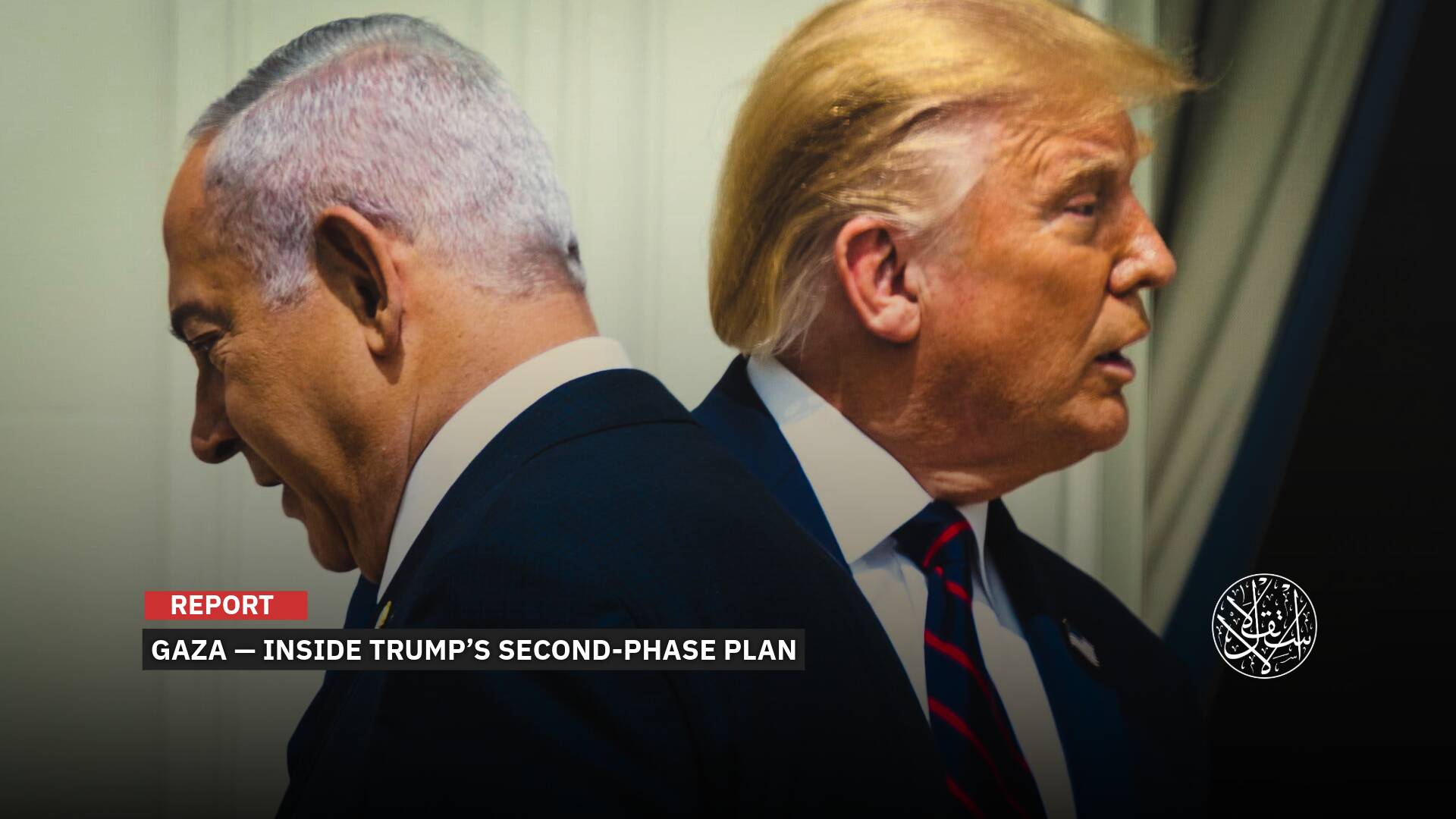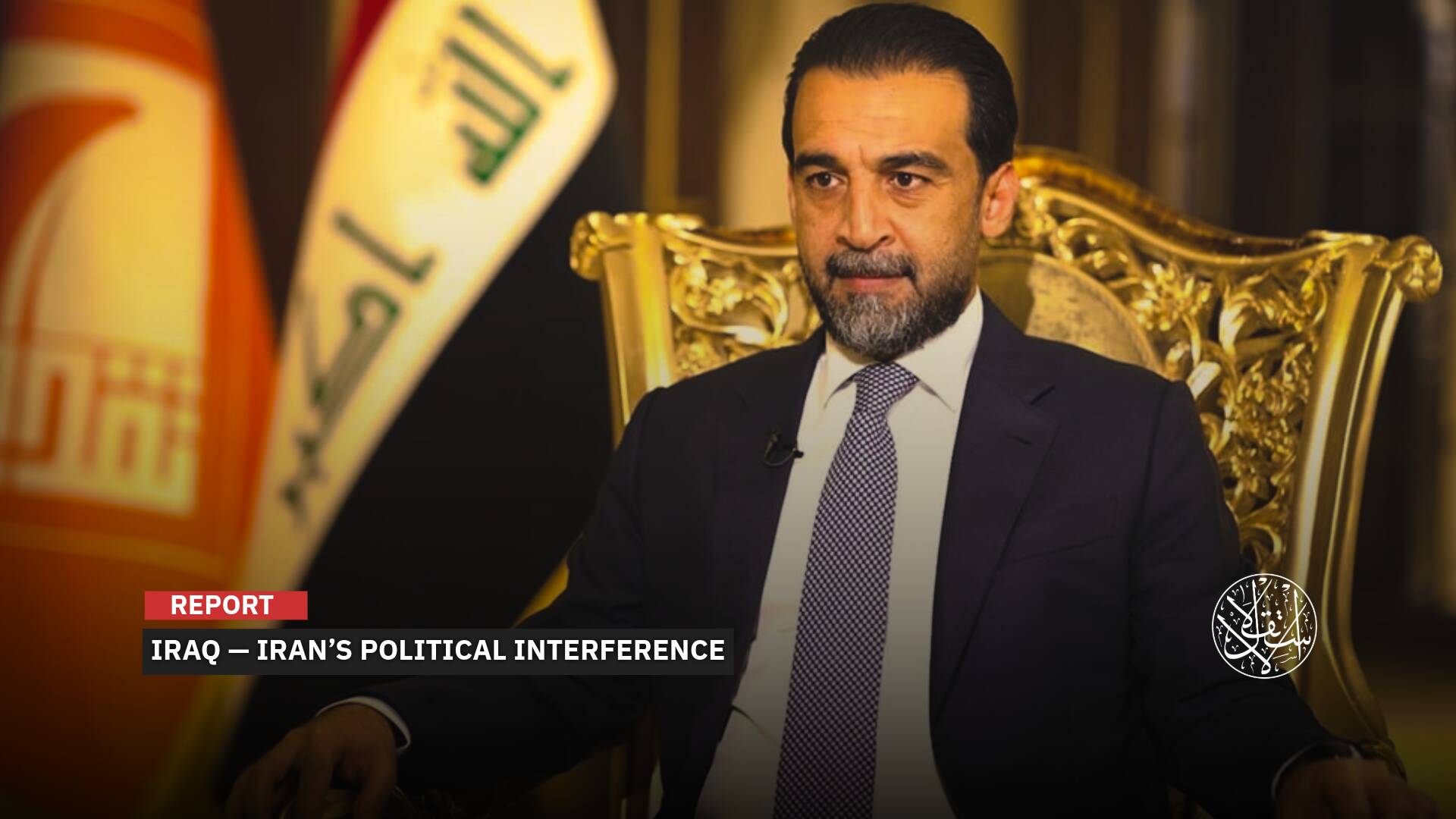Trump’s Controversial Gaza 'Relocation Proposal' Faces Rejection and Political Backlash

The Trump plan gave Netanyahu a new political lifeline.
In a few brief words, President Donald Trump proposed an outrageous and impractical idea to "solve" the Gaza issue—suggesting the complete relocation of its population which drew admiration from “Israel.”
This idea serves as the latest reminder that Trump’s policy ideas often emerge from his own mind or that of a close ally, without serious study or extensive internal discussion, as evidenced by the surprise expressed by many officials upon hearing the plan.
The proposal disregards the complex and sensitive realities of the Middle East, particularly regarding the Palestinian issue and the unique makeup of Gaza's population, prompting analysts to predict its inevitable failure.
A lifeline
Trump administration officials quickly rushed to embrace his bold and unexpected plan for the United States to “take ownership of Gaza and redevelop it into the "Middle East Riviera," as he described it.
This idea has sparked attempts to understand its rationale, with some hoping it is eccentric enough to push other nations to intervene with their own proposals for the Palestinian enclave.
Some experts believe the proposal, which Trump unveiled on 4 February during a joint press conference with Israeli Prime Minister Benjamin Netanyahu, was a product of time and thought, emerging directly from the president’s own mind.
However, Israeli figures, including General "Marco Moreno," suggest the plan to relocate Gaza’s population was not Trump’s, but rather the brainchild of Netanyahu and Israeli Minister for Strategic Affairs Ron Dermer.
Days before unveiling the plan, Netanyahu informed the heads of the negotiating delegation that the leadership of talks during the second phase of the Gaza ceasefire negotiations would be handed over to Ron Dermer, signaling a shift towards sabotaging the completion of the three-phase deal.
The idea provided a political lifeline for Netanyahu, shedding light on why the prime minister had been encouraging the return of his host to power in the 2024 elections, despite their past tensions.
Netanyahu could not keep the smirk off his face when Trump, responding to a question from journalists, stated that Saudi Arabia was not interested in a Palestinian state in exchange for normalization with “Israel.”
Netanyahu’s delight was palpable when Trump answered a question about how many Palestinians would be displaced from Gaza, responding with, “All of them.”
“Netanyahu looked on in the White House on Tuesday as President Donald Trump delivered the most stunning US intervention in the long history of the Israeli-Palestinian [war],” CNN reported.
The president repeatedly reiterated his proposal to relocate nearly two million Palestinians from war-ravaged Gaza to new homes elsewhere, allowing the U.S. to send troops into the enclave, take responsibility, and build the "Middle East Riviera."
"You build really good quality housing, like a beautiful town, like some place where they can live and not die, because Gaza is a guarantee that they’re going to end up dying," Trump told reporters.
According to CNN, "Netanyahu can now bill himself to right-wing factions in his coalition, which incessantly threaten his grip on power, as the unique and vital conduit to Trump."

Now, the views of the U.S. president align with the desires of the Israeli far-right extremists, who wish to see Palestinians expelled from what they regard as the Holy Land of “Israel,” according to an analytical piece published by CNN on 5 February 2025.
Former Israeli National Security Minister Itamar Ben-Gvir confirmed this alignment between Trump’s thinking and the hardline conservatives in “Israel,” posting on X, "Donald, this looks like the beginning of a beautiful friendship."
“To see an American president endorse what would be the forcible expulsion of Palestinians from their home, in an exodus that would subvert decades of US policy, international law and basic humanity, was breathtaking,” CNN reported.
“Trump followed up with the most imperialist reflex yet of a second term in which he’s already threatened to annex the Panama Canal, Greenland and Canada.”
“He envisaged a real estate deal whereby he’d assume responsibility for Gaza and mastermind a job-creating urban regeneration project. He called it an American “ownership position.” A better phrase would be colonialism for the 21st century.”
“The U.S. will take over the Gaza Strip, and we will do a job with it too,” Trump said. “We’ll own it and be responsible for dismantling all of the dangerous unexploded bombs and other weapons on the site. Level the site, and get rid of the destroyed buildings, level it out, create an economic development that will supply unlimited numbers of jobs and housing for the people of the area, do a real job, do something different,” CNN noted.
On 6 February, Trump reiterated that “Israel” will hand over Gaza to the United States after the fighting ends. There will be no need for our soldiers, and stability will prevail in the region.
The Goal of the Plan
Many experts believe that Trump’s plan is doomed to fail, viewing it as a strategy to raise the stakes and the price Palestinians may have to pay following the Operation al-Aqsa Flood and the absence of a solution for Gaza’s governance.
“Israel” has repeatedly rejected Hamas and the Palestinian Authority’s rule over Gaza, but has failed to find any viable alternative for what is known as the "day after the Gaza Strip" post-war.
Trump’s proposal comes amidst negotiations for the second phase of the Gaza ceasefire and prisoner exchange, which appear to be more challenging than ever.
Rather than paying the price of continuing to release prisoners deemed a security threat to “Israel,” alongside the reconstruction of Gaza, Netanyahu seeks to eliminate the Hamas threat while keeping his government coalition intact.
Netanyahu has pledged to return to war after the release of prisoners, but it seems the purpose of the proposal is not to resume war, but rather to seek a final resolution by completely eliminating the issue.
This idea mirrors the plan suggested by Jared Kushner, Trump’s son-in-law and adviser, in February 2024, and represents an advanced stage of the "Deal of the Century."
Kushner proposed relocating Palestinians from Gaza and “cleaning it up” to develop the "highly valuable" Mediterranean coastline.
He described the entire Israeli-Palestinian war as "nothing more than a property dispute between Israelis and Palestinians," stating, "Gaza's waterfront property, it could be very valuable, if people would focus on building up livelihoods."
This move is seen as more dangerous than the "Deal of the Century," which was tied to Arab-Israeli normalization, especially with Trump’s assertion that Saudi Arabia does not want a Palestinian state as a condition for extending a hand to “Israel.”
The plan Trump introduced in 2020 aimed to establish an alternative homeland for Palestinians in Jordan, ending the two-state solution idea and creating what is referred to as a "Greater Israel" or a "single state."
Political and strategic expert Saeed Ziad wrote on X, “We are moving into the second phase of the agreement, but Netanyahu will return to Israel stronger, armed with leverage to keep his government intact without fracturing it as the war remains on hold.”
“The war in its previous form will not return, and the real war now is the war of reconstruction and displacement,” Ziad added.
“The most powerful—and perhaps the only—card the enemy holds is the disruption of reconstruction, exploiting this to maintain the ongoing deprivation of life in Gaza, with full backing from the United States.”
“Gaza is a beautiful piece of coastal land where a profitable tourist project could be built,” Ziad concluded.
In the same context, researcher at the Al Jazeera Center for Studies, Liqaa Maki, argued that Trump would not pursue the forced displacement of Palestinians, as he cannot do so, but he will do everything in his power to make life in Gaza difficult and harsh.
This would be achieved through “obstructing reconstruction efforts and rationing aid, before other countries open their doors for migration on ‘humanitarian’ grounds.”
“This attempt will also fail to empty Gaza, but it will create a new scene of suffering and instability in the region,” Makki added on X.
“The seriousness of Trump’s plan doesn’t mean it will succeed. He either doesn’t understand or doesn’t know the nature of the region, the history of Gaza, or the people’s connection to their land,” Maki added.
“He imagines that everything is open to investment, even homelands, which is why his theory will not work with us. However, the real danger lies in the losses, pressures, instability, and possibly chaos that may unfold until Trump realizes that his plan is unfeasible. This could continue until the end of his term, or perhaps even before that.”
Maki suggested that Washington might push for a ceasefire in Gaza, but “it will obstruct reconstruction for years, while leaving Israel free to expand in the West Bank.”
When asked by a journalist, just a day before his meeting with Netanyahu, about the possibility of agreeing to “Tel Aviv’s” annexation of parts of the West Bank, Trump responded, “[Israel] is a small country in terms of land, [...] See this pen? This wonderful pen on my desk is the Middle East, and the top of the pen — that’s Israel.”
“That’s not good, right? You know, it’s a pretty big difference. I use that as an analogy — it’s pretty accurate, actually,” Trump continued.
Trump’s remarks signal yet another blow to the two-state solution, once again suggesting the forced displacement of Gaza’s over two million residents, as well as the annexation of the occupied West Bank, home to more than three million other Palestinians.
Chances of Success
Current circumstances suggest that the success of Trump and Netanyahu’s plan hinges on how much the population can endure without reconstruction and the basic necessities of life.
Since the ceasefire, only a small number of vehicles have entered Gaza from Egypt, primarily for clearing rubble that stretches as far as the eye can see, covering the entire Gaza Strip.
Meanwhile, food aid and goods remain far below the required levels.
After Israeli Occupation Forces withdrew from the Netzarim area in central Gaza, tens of thousands of residents returned to the northern regions, only to find nothing but devastation and a complete lack of basic services.
Raed Fares, 37, said he returned with his wife and three children to their home in northern Gaza two days after the withdrawal, only to find it uninhabitable.
He told Al-Estiklal that he had planned to set up a tent on the ruins of his house but was confronted with a more tragic reality: there was no access to water, electricity, or food.
“To get a loaf of bread and a drink of water, I have to walk at least two hours to the center of Gaza City,” Fares added.
Faced with this, Fares said he returned with his family to Deir al Balah in central Gaza, waiting for the municipalities to begin repairing the city's water lines.
This is the reality for many who returned to northern Gaza after 15 months of bombardment to check on their homes, only to be forced to leave again because "the area turned into a ghost town."
Throughout the 15 months of war, residents of northern Gaza thwarted numerous plans to displace them and allow “Israel” to fully control the region.
Among these was the so-called "Generals’ Plan," which aimed to occupy the area and expel its residents through ethnic cleansing—forcing them out under bombardment, death, and hunger while preventing aid from reaching the north.
In addition to popular resilience, Trump’s plan faces rejection from Jordan and Egypt over the forced displacement of Palestinians from the West Bank and Gaza.
On 29 January 2025, Egyptian President Abdel Fattah el-Sisi stated that the deportation of the Palestinian people was “an injustice that Egypt cannot partake in.”
“Jordan's King Abdullah II on Wednesday rejected "any attempts" to take control of the Palestinian territories and displace its people, hours after President Donald Trump announced a proposal for the United States to "take over" the Gaza Strip,” Barron’s reported.
“No solution will come at the expense of Jordan’s security and stability,” King Abdullah II reiterated that this is a red line for the kingdom, according to Al-Estiklal.

In September 2024, Jordanian Foreign Minister Ayman Safadi stated, “If there are any attempts to forcibly displace Palestinians to Jordan, we will confront them with all our capabilities, and this is a declaration of war for Jordan, and we will fight.”
“There are matters that cannot be stopped at; because this undermines the Jordanian state and undermines the Palestinians' ambition to obtain a state in their land.”
“Displacing Palestinians from the West Bank to Jordan means transferring the crisis that the occupation created and is exacerbating, which will not end until it ends, to Jordan," Safadi noted.
"Jordan is ready to declare war on Israel in the event that Prime Minister Benjamin Netanyahu attempts to forcibly expel Palestinians into its territory,” Middle East Eye reported.
Citing sources close to the matter, the site said Jordan would close its borders if refugees began crossing into the country. "If the Israelis attempt to reopen them, that will be a cause for war."
“Donald Trump's plan for the US to "take over" and "own" Gaza, resettling its population in the process, is not going to happen. It requires the co-operation of Arab states that have rejected it,” according to the BBC.
“They include Jordan and Egypt - countries that Trump wants to take in Gaza's Palestinians - and Saudi Arabia, which might be expected to foot the bill.”
“Western allies of the US and Israel are also against the idea.”
“Some - perhaps many - Palestinians in Gaza might be tempted to get out if they had the chance.”
“But even if a million left, as many as 1.2m others would still be there.”
“Presumably the United States - the new owners of Trump's "Riviera of the Middle East" - would have to use force to remove them.”
“After America's catastrophic intervention in Iraq in 2003, that would be deeply unpopular in the US,” BBC reported.
The site stressed that “Trump’s plan would mark the end of any remaining hope for a two-state solution—the ambition to end a century-long war by establishing an independent Palestinian state alongside Israel.”
“It would be the final end of any lingering hope that a two-state solution was possible. That is the aspiration that a conflict more than a century old could be ended with the establishment of an independent Palestine alongside Israel,” adding, “But it has been a central plank of US foreign policy since the early 1990s.”
“The answer is that Trump's remarks, however outlandish, will have consequences. He is the president of the United States, the most powerful man in the world - no longer a reality TV host and political hopeful trying to grab headlines,” BBC added.
“Short-term, the disruption caused by his stunning announcement could weaken the fragile ceasefire in Gaza. One senior Arab source told me it could be its "death knell". ”
“The absence of a plan for Gaza's future governance is already a fault line in the agreement.”
“Now Trump has provided one, and even if it does not come to pass, it presses very big buttons in the minds of Palestinians and Israelis,” BBC concluded.











